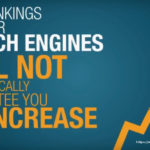E-commerce web applications with AI-powered recommendation systems
In the world of e-commerce, understanding customer behavior and preferences plays a pivotal role in driving sales and boosting customer satisfaction. With the advent of Artificial Intelligence (AI), e-commerce businesses now have access to powerful recommendation systems that can analyze vast amounts of data and provide personalized product recommendations to users. Let’s explore how AI-powered recommendation systems are revolutionizing e-commerce web applications.
What are AI-powered Recommendation Systems?
AI-powered recommendation systems are algorithms that use machine learning techniques to analyze user data and predict their preferences. By understanding a user’s browsing history, purchase patterns, and demographic information, these systems can make highly accurate recommendations for products and services that a user is likely to be interested in. This enhances the user experience by providing targeted and relevant suggestions tailored to individual tastes.
Benefits of AI-powered Recommendation Systems in E-commerce
- Personalization: AI-powered recommendation systems offer personalized experiences by understanding individual preferences,












